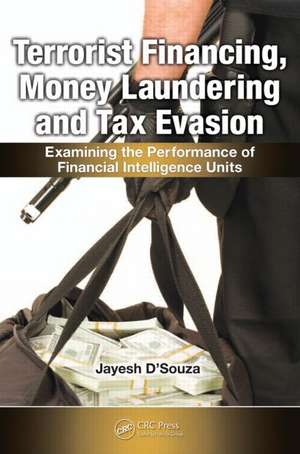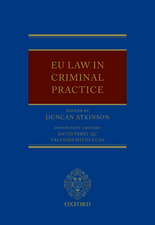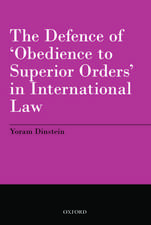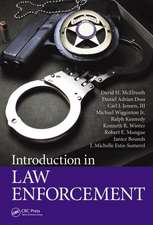Terrorist Financing, Money Laundering, and Tax Evasion: Examining the Performance of Financial Intelligence Units
Autor Jayesh D'Souzaen Limba Engleză Paperback – 8 aug 2011
This volume begins by presenting deep-rooted conflicts in the Middle East, the United States, the Indian subcontinent, Northern Ireland, and South America that have led to modern terrorism. It describes recent developments in counterterrorism and discusses the next steps in intelligence reform. Next, the author discusses how financial crime is committed, examining the source of funds from money laundering and tax evasion among others, and the transfer of these funds. He then covers performance and risk management, and the process of measuring performance using the balanced scorecard method. The book presents an overview of anti-money laundering and counterterrorist financing initiatives in several regions around the globe: the European Union, Asia Pacific, North America, Latin America and the Caribbean, the Middle East, and Africa. It concludes with a survey of experts’ opinions on the efficacy of current programs and recommendations for improving government performance in countering terrorist financing and related money laundering and tax evasion.
Knowing what to target and how to measure results are essential for performance enhancement in preventing and interdicting financial criminal activity. Establishing the need for accurate assessment of the success and failure of FIUs, the book demonstrates how monitoring and measuring progress is a crucial part of financial interdiction efforts in the fight against terrorism.
Preț: 668.34 lei
Preț vechi: 786.27 lei
-15% Nou
Puncte Express: 1003
Preț estimativ în valută:
127.90€ • 133.04$ • 105.59£
127.90€ • 133.04$ • 105.59£
Carte tipărită la comandă
Livrare economică 14-28 aprilie
Preluare comenzi: 021 569.72.76
Specificații
ISBN-13: 9781439828502
ISBN-10: 1439828504
Pagini: 232
Ilustrații: 4 black & white illustrations, 36 black & white tables
Dimensiuni: 156 x 234 x 15 mm
Greutate: 0.41 kg
Ediția:New.
Editura: Taylor & Francis
Colecția CRC Press
Locul publicării:Oxford, United Kingdom
ISBN-10: 1439828504
Pagini: 232
Ilustrații: 4 black & white illustrations, 36 black & white tables
Dimensiuni: 156 x 234 x 15 mm
Greutate: 0.41 kg
Ediția:New.
Editura: Taylor & Francis
Colecția CRC Press
Locul publicării:Oxford, United Kingdom
Public țintă
Academic and Professional Practice & DevelopmentRecenzii
"The book is great and I have required it of my students this semester."
—Moyara Ruehsen, PhD, CAMS, Monterey Institute of International Studies Graduate School of International Policy & Management
" … the book’s objective is remarkably difficult, if not impossible, to achieve. Nonetheless, [it] elucidates a complex field with text that is easy to understand, and it is rich in examples, citations, and exhibits."
—Courtney Banks Spaeth, CEO of National Security Associates Worldwide, in Security Management
"As a guide to the problem, Terrorist Financing, Money Laundering, and Tax Evasion is a valuable source."
—Intelligence Officer’s Bookshelf, CIA website
"Especially interesting are the author’s discussion of how financial crime is committed and the application of a "balanced scorecard" method in measuring programmatic effectiveness in countering terrorist funding."
—Joshua Sinai, Perspectives on Terrorism
" … a very useful, interesting, and stimulating project. For anyone wishing to know something about terrorist financing, developments in counter terrorism, and the work of all the organizations that operate in this area, I highly recommend this book. … contains a lot of interesting facts and figures and is really excellent in showing the relevant case studies.
—Friedrich Schneider, Johannes Kepler University of Linz, Austria, in International Criminal Justice Review
—Moyara Ruehsen, PhD, CAMS, Monterey Institute of International Studies Graduate School of International Policy & Management
" … the book’s objective is remarkably difficult, if not impossible, to achieve. Nonetheless, [it] elucidates a complex field with text that is easy to understand, and it is rich in examples, citations, and exhibits."
—Courtney Banks Spaeth, CEO of National Security Associates Worldwide, in Security Management
"As a guide to the problem, Terrorist Financing, Money Laundering, and Tax Evasion is a valuable source."
—Intelligence Officer’s Bookshelf, CIA website
"Especially interesting are the author’s discussion of how financial crime is committed and the application of a "balanced scorecard" method in measuring programmatic effectiveness in countering terrorist funding."
—Joshua Sinai, Perspectives on Terrorism
" … a very useful, interesting, and stimulating project. For anyone wishing to know something about terrorist financing, developments in counter terrorism, and the work of all the organizations that operate in this area, I highly recommend this book. … contains a lot of interesting facts and figures and is really excellent in showing the relevant case studies.
—Friedrich Schneider, Johannes Kepler University of Linz, Austria, in International Criminal Justice Review
Cuprins
Acknowledgments, Introduction, Author, List of Abbreviations, 1 The Organization of Terrorism and the Reorganization of Intelligence, 2 How Financial Crime Is Committed: The Source of Funds, 3 How Financial Crime Is Committed: The Transfer of Funds, 4 Performance Measurement, Risk Management, and Managing Performance Using the Balanced Scorecard, 5 An International Focus on the Fight against Financial Crime, 6 Financial Intelligence Units: Monitoring Resource and Process Outcomes, 7 How to Better the End Outcome of the Fight against Financial Crime, A Final Word, References
Descriere
Using the Balanced Scorecard method for assessment, this book explores the effectiveness of a government’s financial intelligence units in combating terrorist financing. It examines the large-scale misuse of funds to commit financial crimes, describes how easy it is for criminals, and reviews inter-jurisdictional problems. Contributions from a wide range of professionals provide various perspectives and case studies demonstrate innovative solutions and crime-fighting strategies. Although focused on the U.S., Canada, Australia, the EU, the UK, Spain, and Holland, the strategies apply to all countries.














